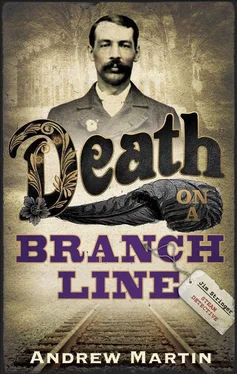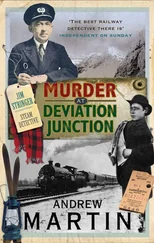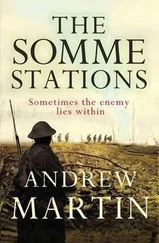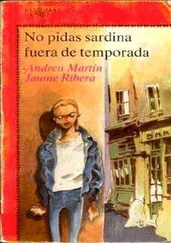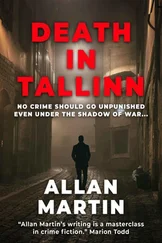Andrew Martin - Death on a Branch line
Здесь есть возможность читать онлайн «Andrew Martin - Death on a Branch line» весь текст электронной книги совершенно бесплатно (целиком полную версию без сокращений). В некоторых случаях можно слушать аудио, скачать через торрент в формате fb2 и присутствует краткое содержание. Жанр: Классический детектив, на английском языке. Описание произведения, (предисловие) а так же отзывы посетителей доступны на портале библиотеки ЛибКат.
- Название:Death on a Branch line
- Автор:
- Жанр:
- Год:неизвестен
- ISBN:нет данных
- Рейтинг книги:5 / 5. Голосов: 1
-
Избранное:Добавить в избранное
- Отзывы:
-
Ваша оценка:
- 100
- 1
- 2
- 3
- 4
- 5
Death on a Branch line: краткое содержание, описание и аннотация
Предлагаем к чтению аннотацию, описание, краткое содержание или предисловие (зависит от того, что написал сам автор книги «Death on a Branch line»). Если вы не нашли необходимую информацию о книге — напишите в комментариях, мы постараемся отыскать её.
Death on a Branch line — читать онлайн бесплатно полную книгу (весь текст) целиком
Ниже представлен текст книги, разбитый по страницам. Система сохранения места последней прочитанной страницы, позволяет с удобством читать онлайн бесплатно книгу «Death on a Branch line», без необходимости каждый раз заново искать на чём Вы остановились. Поставьте закладку, и сможете в любой момент перейти на страницу, на которой закончили чтение.
Интервал:
Закладка:
Well, I had to listen very carefully, and say ‘Pardon’ a lot, but I got the gist. The pub did not pay. The village was in decline. The limestone quarry had been worked out, and farming had been in a bad way for years. His talk became a constant low moan on a theme of everything going to pot: the timber in the woods round about was not of the sort wanted by the modern house-builders, and the holiday trade was nothing to what it had been at the height of the cycling craze. Whole fleets of cyclists, it appeared, had once passed through the Adenwolds every week-end.
At this news, I looked across towards our own bicyclist, but he’d quit the room. Mr Handley talked on, and I pictured Lydia in the tin bath upstairs. I always liked to hang about when she took a bath, and if she didn’t tell me to clear off, that meant we would have a ride. Mr Handley was running on about how he was thinking of removing with his family to York. I asked him, ‘Where in York?’ and — not being very interested in the reply — revolved my own thoughts as he gave it.
What was the Chief up to at the Hall? Had John Lambert killed the Major, and did he mean to make a confession to it in order to save his brother? No. Couldn’t have, because he’d been in London at the time, and the court must have heard evidence to that effect.
What — if any — was the connection between the timetables for the military and the murder?
And the man Usher… If he meant to murder Lambert, why hadn’t he just gone ahead and done it directly? How did things stand between Usher and the new owner of the Hall?
Who had been the man in the dust-coat running away from the station?
And what was the bloody bicyclist up to?
I thought of Gifford, the man from Norwood. I took out my silver watch. It was ten after one; I was supposed to have seen him at the inn at one.
‘Gifford,’ I said, interrupting Mr Handley, ‘the commercial traveller… Have you seen him about?’
Mr Handley shrugged, muttered something like, ‘Not lately.’
I drained off my glass and — telling Handley that I was off to take a turn in the woods — I quit The Angel.
I didn’t mean to go into the woods, though. I meant to bang on the vicar’s door to ask questions as follows. One: why had he been staring at us in the graveyard? Two: why had he called Gifford back? Three: where did he suppose the man might be just at present? Bugger the Chief. He was an old man, shortly to be super-annuated. I would pursue that matter independently of him.
But I wasn’t long out of the front door of The Angel when, looking to my left as I walked towards the first green of Adenwold, I saw something wrong-coloured lodged in the greenery of the woods. I went in after it.
The road was lost to my sight within ten seconds as the barriers of green fell between it and me. I might just as well have jumped into a green sea. I twisted my way between the trees and holly bushes, brambles and ferns, all connected by spider webs of ivy and bindweed, and after half a minute of battling I came to the hat: a brown, high-crowned bowler. It hung on a brier bush in company with thousands of red berries glowing in the green darkness. No name was written in the crown, but it was Gifford’s, I was sure. I caught it up, and fought my way through to the wide clearing that lay beyond the brier bush.
This I took at first to be an expanse of flat moss, but a slip of my boot proved it to be a green and black pond over which a hundred insects swooped, the lot of them looking like man-made flying machines going through their paces. Why had Gifford, the man from the London suburbs who hated nature, entered this abandoned world?
I skirted the pond as he must have done after losing, or abandoning, his bowler, and pressed on, picking my way. Low, sharp branches kept whisking off my own hat as if to say, ‘ Keep it off: show us some respect, won’t you?’ At every turn, my boots broke the twigs beneath my feet, and I began to feel unsure about what lay beneath, like a man walking over the rotten rafters of an ancient attic.
I called out ‘Gifford!’ a few times, but there came no answer.
Of course, he might have gone the other way around the pond. My route led in the direction of a golden light coming through the trees, and as I came to the limit of the woods — and re-entered the heat of the day — I saw that the golden-ness was made by the sun and a cornfield combined. The edge of the woods was marked by clouds of cow parsley, just as the border of a fancy handkerchief is marked by lace.
I walked along a little way, and then I saw another wrong colour, this time on the ground. I picked up the red model engine: the single-driver. It was made of stout soldered tinplate, and beautifully finished. The maker’s name was stamped in German underneath. It might have been something like ‘Gastin’, with two little dots over the ‘a’, but the letters were too tiny to be made out.
Turning the model over in my hands, I thought of the German railways. It was said that you had to show your ticket to the guard on all trains with no exceptions, and that the guard saluted you like a military man when you did so. The station masters saluted passing trains all along the line, whether those trains stopped at their stations or not. As a people, they were lacking in humour, and they carried method too far.
But Gifford, surely, was neither German nor a travelling agent of that country. As he had said himself, he was a traveller in small locomotives. Yet he had possessed some secret, some knowledge touching on the Adenwold mysteries, and he had meant to tell me it.
Had he been observed in the course of observing someone? Had the vicar brought him into the woods to put his lights out, only to drop in on the railway station and collect the cricket team?
The locomotive had spilled from its bag, which was hard by in the grass. I looked up and there, lying under cow parsley, was Gifford’s Gladstone bag… not six feet from the man himself.
He was half in a ditch, his head pointing down into its depths, his boots higher than his head. Directly above was the stout branch of a giant oak. Had he come down from it?
Or had he been pursued through the woods, only to come a cropper as soon as he escaped the trees?
He seemed to have attained a kind of peacefulness in his position. His eyes were closed, and he looked to be having a pleasant sort of dream, but his head was cut by brambles, his face was bluish and a quantity of dark-coloured blood had flowed from the corner of his mouth.
I held my hand over his mouth, and felt nothing. I knelt down and put my face directly in front of his, at which I detected faint breaths. If he had come down from a height, and suffered a smash, I ought not to touch him.
Had he tried to make away with himself by leaping from the tree? Perhaps he was in low water financially. He’d sounded desperate enough, and the vicar had evidently not purchased the red engine.
It seemed wrong that I should be able to view his head so closely. I touched my hand to his hair, and my fingers came up rust-coloured. Blood (and a good deal of it) was working with the Brilliantine to keep Gifford’s hair fixed in place, and shining. I touched again, and there was a groove under the hair. I pulled my hand away fast. Had he taken a bullet?
I sat up on the edge of the ditch; ten yards to my left, a wooden bridge ran across it, half-hidden by brambles. Two white butterflies danced in the air before my face, as if to say, ‘Isn’t this all a lark? You may have your troubles, but we’re on holiday just at present.’
I set the little engine down next to the Gladstone bag, and looked at my silver watch: one thirty-five.
Chapter Twenty-One
Flying along the margins of the cornfield, I kept a look-out for the telegraph poles that ought to be somewhere ahead. They would indicate the territory of the railway line.
Читать дальшеИнтервал:
Закладка:
Похожие книги на «Death on a Branch line»
Представляем Вашему вниманию похожие книги на «Death on a Branch line» списком для выбора. Мы отобрали схожую по названию и смыслу литературу в надежде предоставить читателям больше вариантов отыскать новые, интересные, ещё непрочитанные произведения.
Обсуждение, отзывы о книге «Death on a Branch line» и просто собственные мнения читателей. Оставьте ваши комментарии, напишите, что Вы думаете о произведении, его смысле или главных героях. Укажите что конкретно понравилось, а что нет, и почему Вы так считаете.
